Xi Jinping’s ideology written into China’s constitution in historic decision
THE Chinese President has been formally approved as the country’s most powerful leader, tightening his grip. Should the world be worried?
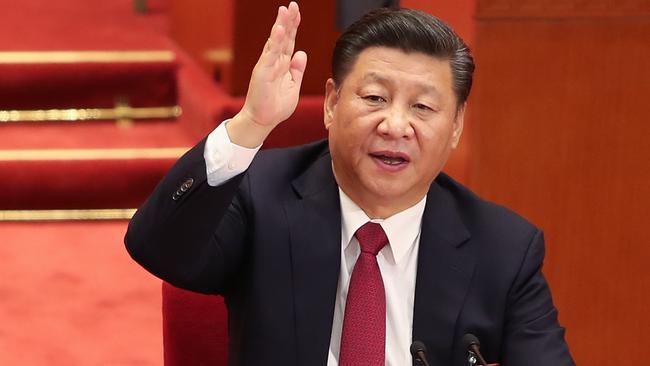
CHINA’S biggest leader just got a lot more powerful.
The country’s ruling Communist Party formally lifted Xi Jinping’s status during the 19th Party Congress in Beijing in a move which has alarmed experts.
The move to insert Xi’s name and dogma into the party’s constitution alongside the party’s founders, including Mao Zedong, came at the close of a twice-a-decade congress that gathered the country’s ruling elite alongside rank-and-file party members.
The authoritarian leader has just today secured a second term as head of the Chinese Communist Party, and the stage is now set for Xi to tighten his grip over the country while pursuing an increasingly muscular foreign policy and military expansion.
However experts argue it is a huge step backwards and puts the Chinese President above political reproach.
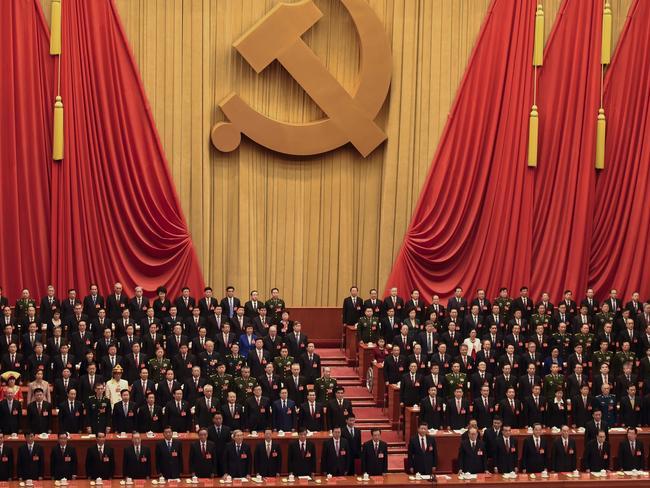
Dr Malcolm Davis, senior analyst in defence strategy and capability at the Australian Strategic Policy Institute, said the world could now expect to see Xi’s unbridled power.
Dr Davis said it was clear that the 19th Party Congress was all about Xi.
“His rise to power is essentially complete, with him now elevated on the same level as Mao and Deng Xiaoping, and the constitution has been changed to incorporate his thoughts (enshrined) into Chinese ideology,” he said.
“I think it is almost certain that he’ll seek a third term that would see him be China’s ‘core’ through to the 2030s, and his legacy will extend beyond that as he’ll pick a heir apparent that is beholden to him.”
Dr Davis said he believed Xi would pull the strings even after he stepped down but it was hard to know what he planned to do with his power now.
“He is likely to take China on a more assertive path that is really about challenging US global leadership and most clearly, strategic primacy in Asia,” he said.
“Coming out from the 19th Party Congress, he is asserting China’s approach (capitalism with authoritarianism) as an alternative path for development to western liberal democracy, and he made clear that China will challenge the existing rules-based order to assert their own alternative.”
Dr Davis said he didn’t think there was any intention of moving towards democracy under Xi and China would become even more authoritarian.
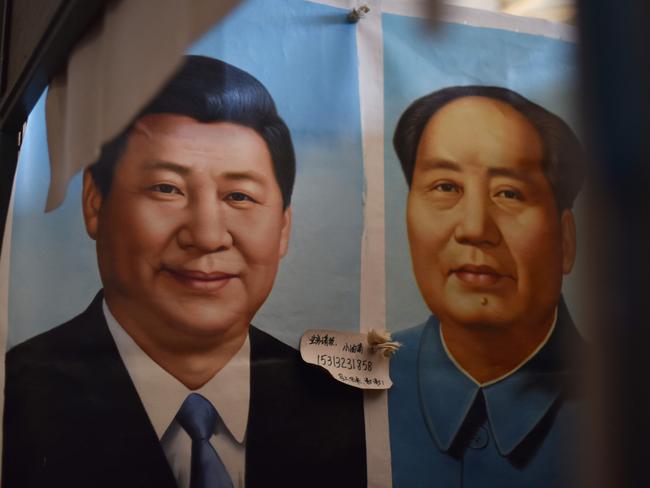
He also predicted a more assertive China which would be bold in challenging the US and its allies and asserting its power and influence.
Dr Davis said he expected China to promote the Belt and Road Initiative as a means to achieving the China Dream of becoming a global superpower which dominates Asia.
“They won’t admit that that is their goal, but they do have hegemonic ambitions, and I think Xi’s assertion of a ‘Beijing Consensus’ — their approach to development that eschews democratisation — is a real challenge for Australia and other democracies,” he said.
“How many developing states will switch to this Beijing Consensus, and in doing so, align with China? That’s a key question we need to answer.”
New York-based Asian analyst Sean King said China enshrining Xi meant anyone who questioned him needed a good reason for doing so.
“But I doubt anybody ever will question him,” Mr King said. “Hence an even tighter society. Even more closed politics-wise.
“It’s basically Xi’s way or the highway and he’s not going anywhere anytime soon, as he’s all but certainly setting himself up for a third term not having named a successor at this congress.”
Mr King said Xi would likely double-down on any dubious achievements to date including his artificial island-building in the South China Sea which would mean even sharper elbows for Beijing’s neighbours.
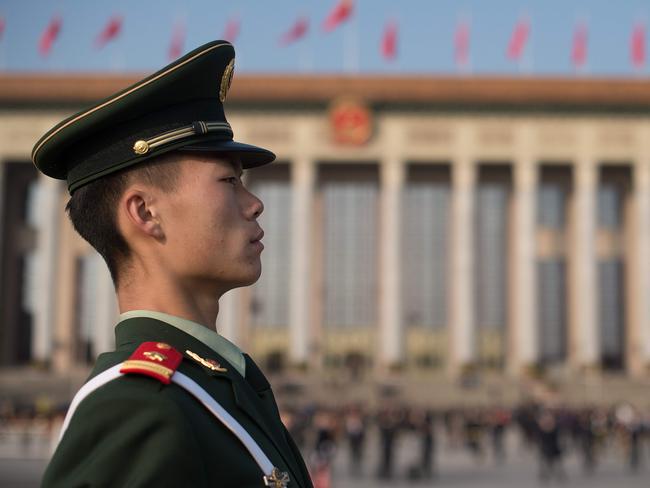
“This can’t be good news for Australia, Japan, India and others who value the freedom of navigation,” he said.
“It also shouldn’t be good news for President Trump but (former chief strategist) Steve Bannon recently told a Hong Kong audience that Mr Trump respected Mr Xi more than any other leader. So, who really knows?”
‘NEW ERA’
Delegates approved the addition of Xi’s ideology of “socialism with Chinese characteristics for a new era” to the party charter.
Xi told party delegates his country and people had a bright future ahead.
“Living in such a great era, we are all the more confident and proud, and also feel the heavy weight of responsibility upon us,” he said.
The concept Xi has touted is seen as marking a break from the stage of economic reform ushered in by Deng Xiaoping in the late 1970s and continued under his successors Jiang Zemin and Hu Jintao.
Xi has spoken of China emerging into a “new normal” of slower, but higher quality economic growth.
The placement of Xi’s thought among the party’s leading guidelines also comes five years into his term — earlier than his predecessors.
Zhang Lifan, an independent political commentator in Beijing told the Associated Press the Xi Jinping era had begun in earnest. “Only Mao’s name was enshrined in the party ideology while he was still alive,” Mr Zhang said.
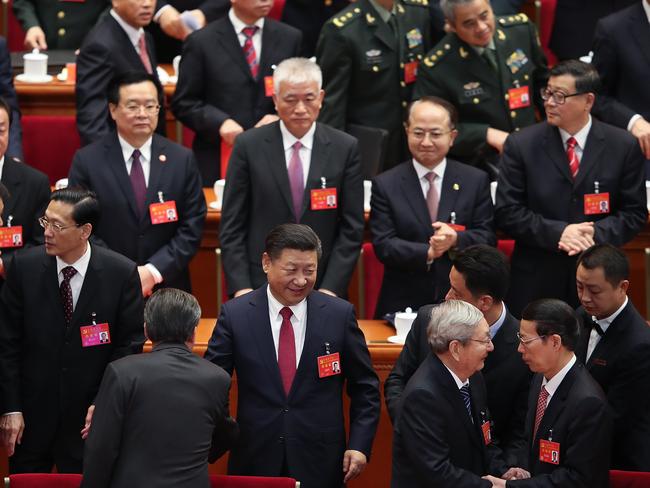
“We’re opening something that hasn’t been broached before.”
For centuries, Chinese emperors were accorded ritual names that signalled either they were successors in a dynastic line or the founders of an entirely new dynasty. What Xi accomplished this week was a modern equivalent of the latter.
“He wants to join that pantheon of leaders,” Mr Zhang said.
Zhang Ming, a political analyst in Beijing said Xi still lacked the broad popular support of the Chinese public that Mao had.
Xi has described his concept as central to setting China on the path to becoming a “great modern socialist country” by mid-century.
This vision has at its core a ruling party that serves as the vanguard for everything from defending national security to providing moral guidance to ordinary Chinese.
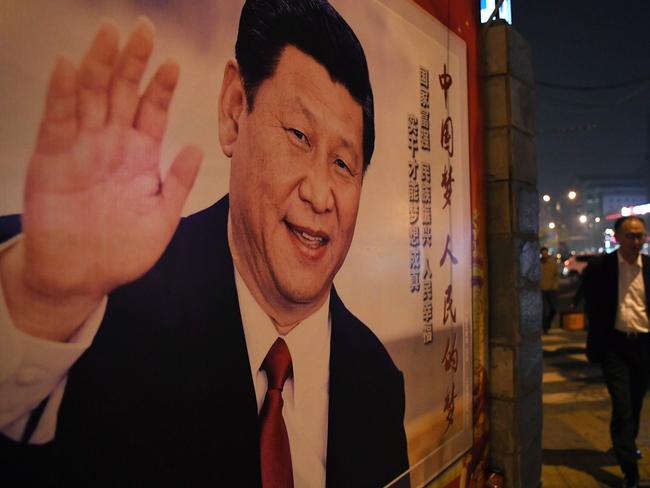
GROWTH OF CHINA
The Chinese leader has set the target date of 2049, the People’s Republic’s centenary, for the establishment of a prosperous, modern society.
The move came at the close of the 89 million-member party’s national congress at Beijing’s hulking Great Hall of the People, where nearly 2300 delegates gathered to elect the party’s leading bodies and hear reports.
Although the delegates nominally have the power to vote on candidates, all choices are carefully vetted and the outcomes decided by negotiations among the top leaders.
The constitution was also amended to include references to the party’s “absolute” leadership over the armed forces, which have been modernising rapidly under Xi.
He is also committed to promote his signature foreign policy and infrastructure initiative known as One Belt, One Road which aims to link China to Southeast Asia, Central Asia, Africa, Europe and beyond with a sprawling network of roads, railways, ports and other economic projects.
— with the Associated Press



